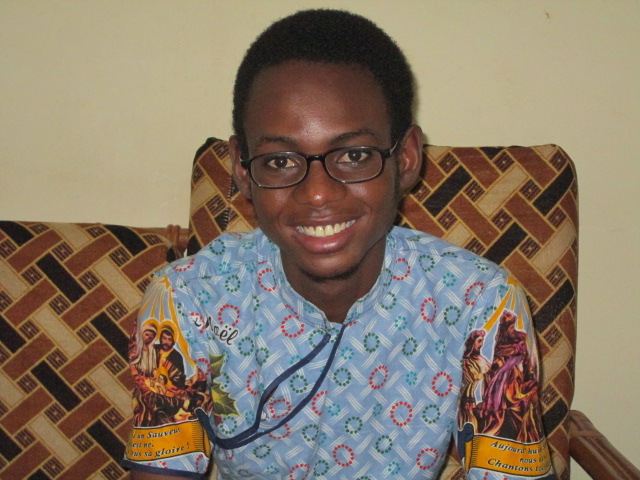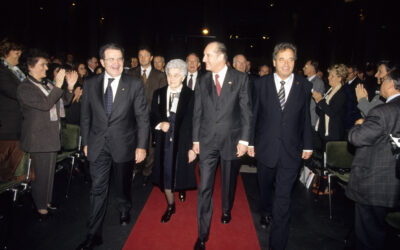 «Ever since our parents separated, my sister and I have been living with our father. It is a very difficult situation for me, also due to my health. I have been suffering from asthma and for two years now, also heart problems. Thanks to the support of many youths who like me try to live the spirituality of unity, these physical limits do not hinder me from living my Christian commitment with enthusiasm. Instead, as a student, things were not going well. In the public school I was attending, there was not much attention for students in my situation, and when I found out that I had to repeat the first year of high school, I changed school. In the new school I understood better the importance of education and the advantage of achieving a diploma. At the start of the year, my grades were good: evidently the new incentive was working well. One evening I had a terrible headache. I hoped that it would pass during the night since in the next days I was expecting a series of tests. Effectively in the morning the headache had disappeared, but when I took my books in hand, it returned, stronger than ever. The same thing happened every time I tried to concentrate on an intellectual task. I went to many hospitals but none were able to diagnose my disease. Meanwhile the average of my grades dropped, while my headache had become a permanent thing. My father had no more money to pay the doctors, so I tried to consult the traditional quack doctors, to no avail. Overcome by this situation strong doubts of faith started to assault me. I asked myself: out of seven billion people in this situation, why did this have to happen precisely to me, now that I had decided to take my studies seriously? Despite my rebellion I wanted to participate with the Gen in an educational weekend. I attended only to see my friends, and not really because I believed in it. The meeting started with a video-speech of Chiara Lubich, but I was so angry with God that I didn’t even listen, or want to give my contribution to the communion of goods. I was even less interested in what the others were saying. My mind wandered elsewhere. I thought that God had forgotten me, no one could understand me, and these meetings were useless. At a certain point, however, I was struck by a boy who said that in difficult moments we can give hope to others by valorizing our personal sufferings. And that it is precisely in making ourselves one with Jesus crucified and forsaken that we find the strength to love the others. These words were like a challenge to me. I said to myself: if Jesus on the cross had pulled back, what would we do now. From that moment on I found the strength to accept my situation and the certainty that God is love also when he permits suffering. And even if I continued to have headaches, I found the joy of living again, out of love for my sister and all those who tried to bring joy all around me. Thanks to the prayers of many, today I feel much better and if there are no other surprises, it seems that even my health has returned.»
«Ever since our parents separated, my sister and I have been living with our father. It is a very difficult situation for me, also due to my health. I have been suffering from asthma and for two years now, also heart problems. Thanks to the support of many youths who like me try to live the spirituality of unity, these physical limits do not hinder me from living my Christian commitment with enthusiasm. Instead, as a student, things were not going well. In the public school I was attending, there was not much attention for students in my situation, and when I found out that I had to repeat the first year of high school, I changed school. In the new school I understood better the importance of education and the advantage of achieving a diploma. At the start of the year, my grades were good: evidently the new incentive was working well. One evening I had a terrible headache. I hoped that it would pass during the night since in the next days I was expecting a series of tests. Effectively in the morning the headache had disappeared, but when I took my books in hand, it returned, stronger than ever. The same thing happened every time I tried to concentrate on an intellectual task. I went to many hospitals but none were able to diagnose my disease. Meanwhile the average of my grades dropped, while my headache had become a permanent thing. My father had no more money to pay the doctors, so I tried to consult the traditional quack doctors, to no avail. Overcome by this situation strong doubts of faith started to assault me. I asked myself: out of seven billion people in this situation, why did this have to happen precisely to me, now that I had decided to take my studies seriously? Despite my rebellion I wanted to participate with the Gen in an educational weekend. I attended only to see my friends, and not really because I believed in it. The meeting started with a video-speech of Chiara Lubich, but I was so angry with God that I didn’t even listen, or want to give my contribution to the communion of goods. I was even less interested in what the others were saying. My mind wandered elsewhere. I thought that God had forgotten me, no one could understand me, and these meetings were useless. At a certain point, however, I was struck by a boy who said that in difficult moments we can give hope to others by valorizing our personal sufferings. And that it is precisely in making ourselves one with Jesus crucified and forsaken that we find the strength to love the others. These words were like a challenge to me. I said to myself: if Jesus on the cross had pulled back, what would we do now. From that moment on I found the strength to accept my situation and the certainty that God is love also when he permits suffering. And even if I continued to have headaches, I found the joy of living again, out of love for my sister and all those who tried to bring joy all around me. Thanks to the prayers of many, today I feel much better and if there are no other surprises, it seems that even my health has returned.»
Love unites
Love unites




0 Comments